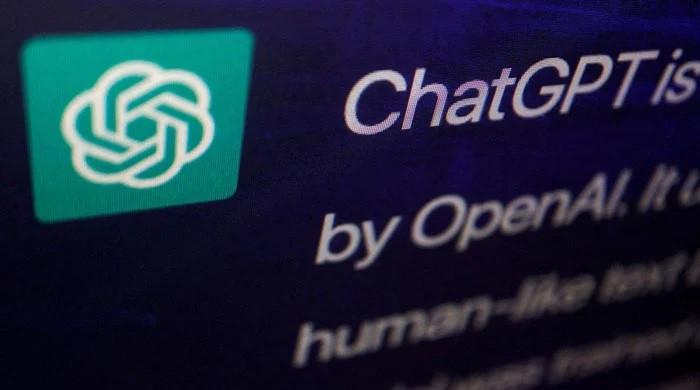
OpenAI Expands ChatGPT's Integration with Everyday Digital Tools
OpenAI has recently announced a significant expansion of ChatGPT's capabilities, allowing it to interact seamlessly with commonly used digital tools. This development is poised to enhance user experience and accessibility for the AI chatbot, which already boasts an impressive 800 million weekly users. In this article, we will explore the implications of this expansion, how it works, and address frequently asked questions regarding ChatGPT's integration with popular apps like Spotify and Booking.com.The Evolution of ChatGPT: A Brief Overview
Since its launch, ChatGPT has evolved from a simple conversational agent into a powerful generative AI tool. With the ability to understand and generate human-like text, ChatGPT has become an indispensable tool for millions of users worldwide. The recent updates aim to further enhance its functionality by enabling it to interact with everyday applications, making it more versatile than ever.
New Features: ChatGPT Meets Everyday Apps
Seamless Integration with Spotify
One of the most exciting features of this expansion is ChatGPT's integration with Spotify. Users can now ask ChatGPT for music recommendations, playlists, and even help with discovering new artists. This integration allows for a more personalized music experience as the AI can analyze user preferences and suggest songs that align with individual tastes. Imagine asking, “What’s a good playlist for a rainy day?” and receiving curated suggestions in real-time.
Booking Made Easy with Booking.com
Another significant addition is ChatGPT’s ability to interact with Booking.com. Users can now inquire about hotel availability, get recommendations for travel destinations, and even make reservations through a simple chat interface. This feature streamlines the travel planning process, making it effortless for users to book their next getaway with just a few conversational prompts.
Enhanced User Interaction Across Platforms
Beyond Spotify and Booking.com, the expansion allows ChatGPT to function across various platforms, enhancing its usability. Whether you're managing tasks on productivity apps or seeking information through social media platforms, ChatGPT's ability to provide contextual assistance can dramatically improve user engagement and satisfaction.
How Does This Work?
The integration of ChatGPT with these applications is powered by advanced APIs (Application Programming Interfaces), which facilitate communication between the AI and the apps. By leveraging machine learning algorithms and natural language processing, ChatGPT can understand user queries and respond appropriately. This technology enables a smoother and more intuitive interaction, allowing users to engage with applications in a conversational manner.
Benefits of ChatGPT's Expansion
Improved User Experience
The primary advantage of integrating ChatGPT with everyday tools is the enhancement of user experience. Users can access information and services more quickly and efficiently, making technology feel more human-like and approachable.
Increased Accessibility
With ChatGPT now interacting with popular apps, the technology becomes more accessible to a broader audience. Users who may not be tech-savvy can leverage the power of AI without needing to navigate complex interfaces.
Personalization
The ability of ChatGPT to tailor responses based on user preferences leads to a more personalized interaction. Users can receive recommendations and assistance that are specifically suited to their individual needs, making each interaction unique and valuable.
Conclusion
The expansion of ChatGPT's capabilities to interact with everyday digital tools marks a significant step forward in the evolution of AI technology. By integrating with popular applications such as Spotify and Booking.com, OpenAI is enhancing user experience, accessibility, and personalization. As this technology continues to grow, users can look forward to an increasingly seamless and intuitive interaction with their digital world. Whether you’re looking for music recommendations or planning your next vacation, ChatGPT is becoming the go-to assistant for everyday tasks. Embrace the future of AI and discover how ChatGPT can simplify your life today!
Frequently Asked Questions (FAQs)
1. What types of applications will ChatGPT be integrated with in the future?
OpenAI is continuously working on expanding ChatGPT's capabilities. While current integrations include Spotify and Booking.com, future integrations could encompass a wide range of apps across various sectors, including finance, education, and healthcare.
2. Is ChatGPT able to learn from my interactions?
Yes, ChatGPT can learn from user interactions to some extent. It analyzes patterns in user queries to provide more accurate and relevant responses over time. However, it does not store personal data beyond the session for privacy reasons.
3. How can I make the most out of ChatGPT's new features?
To maximize your experience, try asking specific questions or requesting detailed information related to the apps you are using. For example, you can ask for personalized playlist recommendations on Spotify or inquire about the best travel destinations based on your preferences on Booking.com.
4. Is there a cost associated with using ChatGPT's integrated features?
While basic access to ChatGPT is often free, some integrations may require subscriptions or in-app purchases depending on the specific application. Always check the terms of service for the respective app.
5. How secure is my data when using ChatGPT with other applications?
OpenAI prioritizes user privacy and data security. While ChatGPT processes input to generate responses, it does not retain personal data beyond the duration of the session. Always ensure you are using reputable apps that comply with data protection regulations.
Tags
Technology
